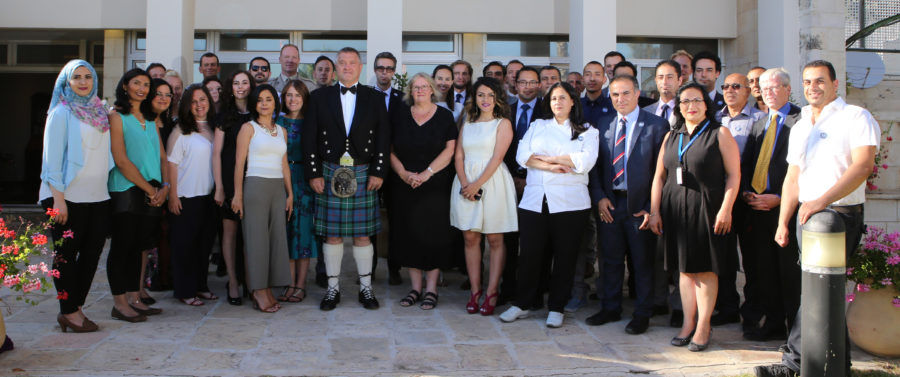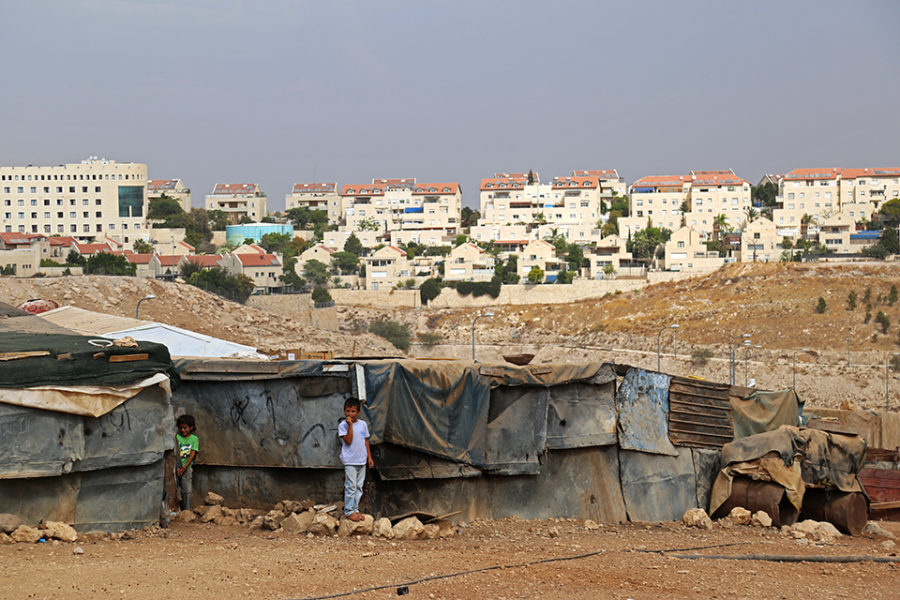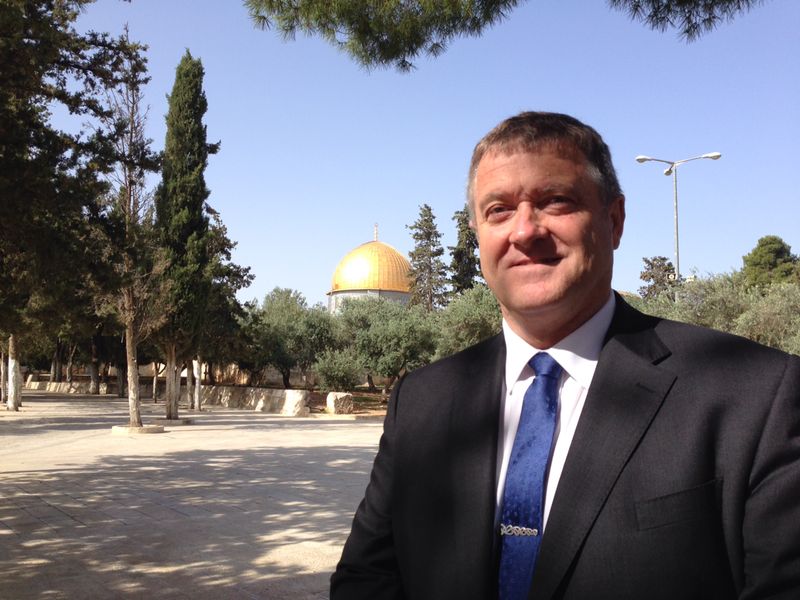19th July 2017 Jerusalem, Israel
My last day in Jerusalem

Today is my last day as the British Consul General in Jerusalem. I arrived in Jerusalem in January 2014, right in the middle of the negotiations led with great energy and commitment by former US State Secretary, John Kerry, and today I’m leaving as my American colleagues work to relaunch negotiations. My hope is that this new process led by President Trump will be successful. They will certainly have my Government’s support.
It has been a pleasure, albeit also quite difficult and challenging, working and living in the Occupied Palestinian Territories over the last three and a half years. During my time here, I’ve had the pleasure of seeing every corner of the Palestinian Territories, from Jenin to the South Hebron Hills, from Beit Hanun to Rafah, and everything in between. I have done so from my base in Jerusalem, a signal of my Government’s belief that two States, Israeli and Palestinian, will one day have their respective capitals here.
It has also been a great joy to meet Palestinians from every walk of life, from Palestinian leaders working to achieve statehood for their people to young Palestinians who aspire to be the leaders of tomorrow. From Palestinian fishermen in Gaza City struggling to make a living to successful business people working on awe inspiring projects. The many people I’ve met here have made my time here incredibly memorable.
While living here, I’ve picked olives with farmers from vulnerable areas of the West Bank as part of a UK government project in support of Palestinian communities, and played football with young boys and girls from Jerusalem and Gaza City as part of a project to support vulnerable youth. I have attended some remarkable cultural events, such as the International Women’s Day celebrations that my colleagues at the British Consulate General organized, in partnership with UNWOMEN, for the last two years to recognise the achievements of inspiring Palestinian women. I also vividly remember how encouraged I was after seeing the massive Rawabi City project for the first time.

These experiences proved to me time and time again, how entrepreneurial, creative and resourceful Palestinians are and demonstrated the immense potential Palestinians have as a people.
At the same time however, I’ve seen the other side of life for Palestinians. In 2014, I witnessed a war in the Gaza Strip that saw the death of over 2,300 people on both sides, including over 1,450 Palestinian civilians and 550 Palestinian children according to UN figures, and 5 Israeli civilians. To make matters worse, the divide between the West Bank and the Gaza Strip continues.
I’ve seen significant spikes in violence that led to dozens of casualties on both sides. Violence is not the way for Palestinians to achieve their aims. I firmly believe that Palestinian statehood will only be achieved by negotiation. The attacks in Jerusalem and elsewhere, especially in the autumn of 2015, were not acceptable. At the same time Israeli violence against Palestinians is unacceptable as well. After the firebombing of the Dawabsheh family home in Duma in July 2015, I visited the village and saw the horrendous after affects of this terrible terrorist attack. During my time here 715 acts of settler violence were reported in the Occupied Palestinian Territories.
I’ve also seen and been shocked by the increased pace of Illegal Israeli settlements, land confiscations and demolitions of Palestinian private property. During my time here, 2,491 structures were demolished and 2,618 Palestinians were killed by Israeli forces and settlers, while 130 Israelis were killed by Palestinians. Additionally, for the first time in decades a new Israeli settlement was announced.
But more important than the facts and figures is the personal impact of the occupation on the lives of Palestinians. The occupation is dehumanizing and painful.. I was personally struck by this reality when I visited Hebron’s Old City for the first time and saw the effects of settlements, settler violence and movement and access restrictions on the lives of Palestinians living there.

A few weeks ago, we marked the 50th anniversary of the Israeli occupation of the West Bank, including East Jerusalem, and the Gaza Strip. At the Consulate General, we marked the anniversary by revisiting and reacquainting ourselves with the effects of Israeli settlements, settler violence and the Separation Barrier on the lives of Palestinians. This anniversary reminds us how important it is for everyone to work together to end the occupation and establish an independent and secure Palestinian state.
The UK will continue to play its part to achieve this. First, we will continue to press both sides to take the necessary steps to achieve the best end-state to this conflict that we can see : a two-state solution that would see a viable and sovereign Palestinian state created alongside a secure and safe Israel, with Jerusalem as a shared capital and a just and realistic resolution to the Palestinian refugee issue. We continue to regard Israeli settlements as illegal under international law and an obstacle to peace.
Secondly, we, in the British government, have invested a significant amount of resources – time, money and people – to support and empower Palestinians. The UK contributes approximately 100 million US dollars every year to support the Palestinian education and health systems, and Palestinian refugees, in addition to providing legal aid to Palestinians affected by the Israeli occupation. We are proud to do this because we truly believe that the establishment of an independent Palestinian State is in the best interest of all.
As the British Consul General, I’ve had the pleasure of writing in the illustrious pages of Al-Quds newspaper several times. Although it is easy to get disheartened, I still believe in the hopes those articles expressed. I still believe that a durable peace is essential, for the sake of Israelis and Palestinians. I remain committed to the notion that Area C and the Gaza Strip must not be forgotten, to the importance of Hebron and the preservation of the Palestinian presence in Jerusalem.
I leave here with the fervent hope that Palestinians will be able to achieve their independence. I believe that Palestinians have the right to self-determination and I hope to see that come to pass. In the meantime I know that we will continue to work to improve the close relations between the British and Palestinian peoples.

nice article